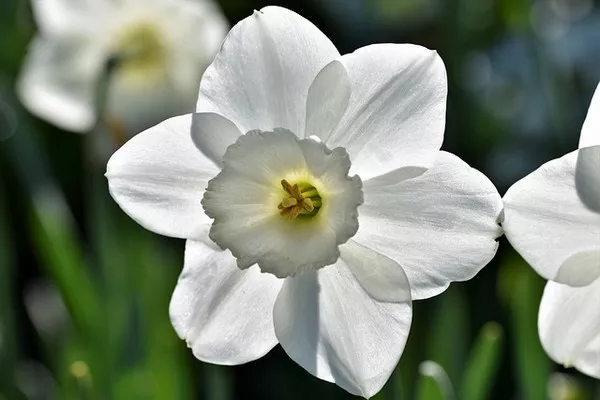Flowers have long been a language of their own, communicating emotions, sentiments, and messages without the need for words. Among the myriad of colors and varieties, white flowers hold a special place in the world of floral symbolism. Often associated with purity, innocence, and spirituality, white flowers carry a rich history of meaning and significance across various cultures and occasions. In this article, we will explore the symbolism and meanings behind white flowers, shedding light on their elegance and timeless allure.
1. Purity and Innocence
White is universally recognized as the color of purity and innocence. White flowers, with their pristine and unblemished appearance, have long been emblematic of purity in both the physical and spiritual sense. They are often used in weddings and religious ceremonies to represent the pure intentions and new beginnings of the individuals involved.
2. Spiritual and Symbolic Significance
In many religious and spiritual traditions, white flowers are revered for their symbolic meaning. They are frequently used as offerings to deities or as a symbol of divine purity. In Christianity, white lilies are associated with the Virgin Mary’s purity, making them a common choice for religious events and ceremonies.
3. Sympathy and Remembrance
White flowers also hold a strong association with sympathy and remembrance. They are a popular choice for funerals and memorial services, signifying the reverence and respect for the departed soul. White flowers express the hope for peace and the belief in the eternal purity of the departed spirit.
4. Love and Unity
While red flowers are typically associated with romantic love, white flowers can also convey love and unity, albeit in a different context. White flowers symbolize the pure and unconditional love between friends, family members, or platonic relationships. They are often exchanged as a gesture of love and support, particularly during times of celebration or hardship.
5. New Beginnings and Fresh Starts
White flowers are often associated with new beginnings and fresh starts. Their immaculate appearance represents a clean slate and the opportunity for growth and transformation. White flowers are commonly used in celebrations of new life, such as births and baptisms, to mark the beginning of a new journey.
6. Elegance and Grace
The color white exudes elegance and sophistication, and white flowers are no exception. Whether used in elaborate floral arrangements or as simple, delicate blooms, white flowers lend a touch of grace and refinement to any setting.
7. Marriage and Weddings
White flowers are a timeless choice for weddings, symbolizing purity, innocence, and the sacred bond of marriage. The tradition of using white flowers in weddings dates back centuries and remains popular to this day. White roses, lilies, and orchids are among the most favored blooms for bridal bouquets and venue decorations.
8. Healing and Hope
In times of illness or recovery, white flowers can offer a message of healing and hope. They represent the optimism for a speedy recovery and the purity of the healing process. White flowers are often sent as get-well gifts to bring comfort and encouragement to the recipient.
9. Subtle Expressions of Sympathy
White flowers are a subtle and thoughtful way to express sympathy and condolences. Their understated elegance conveys a message of support and compassion to those experiencing loss and grief.
10. Endurance and Resilience
White flowers, particularly those that bloom in harsh conditions or extreme climates, symbolize endurance and resilience. They serve as a reminder that strength can be found even in the most challenging circumstances.
11. Cultural and Regional Variations
While the symbolism of white flowers remains consistent across many cultures, there are also unique interpretations and meanings specific to certain regions and traditions. For instance:
In Asian cultures, white flowers are often associated with purity, spiritual enlightenment, and harmony.
In Eastern European traditions, white flowers are commonly used in weddings and symbolize new beginnings and happiness.
In some Native American cultures, white flowers represent the connection to the spirit world and are used in sacred rituals.
Conclusion
The elegance and beauty of white flowers transcend borders and cultures, making them a timeless choice for various occasions and expressions. Their symbolism of purity, innocence, and new beginnings lends a touch of grace and significance to any floral arrangement or gift. Whether used in weddings, religious ceremonies, sympathy gestures, or celebrations of life, white flowers carry a profound message of hope, love, and unity that continues to resonate with people around the world.


